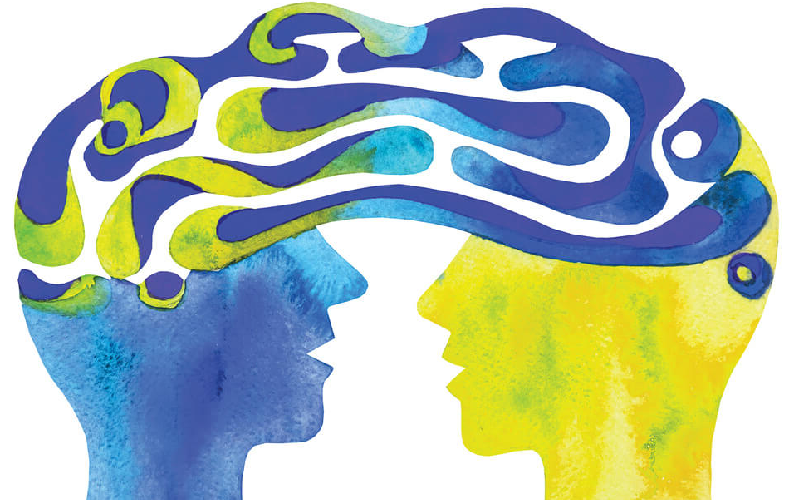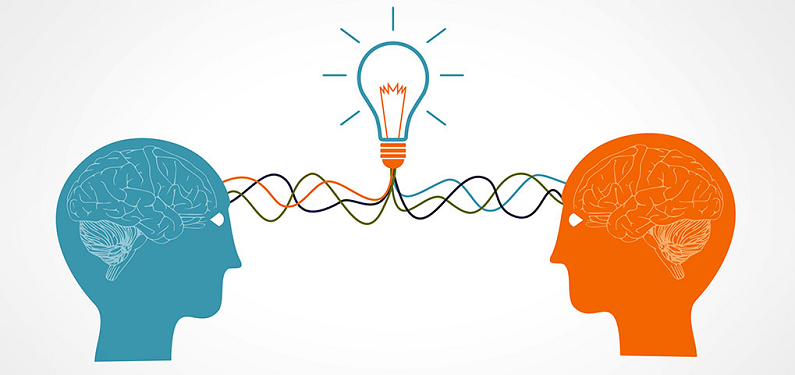
In a world where emotional intelligence (EI) increasingly determines both personal and professional success, understanding and cultivating empathy stands out as a vital skill. Empathy, often described as the ability to put oneself in another’s shoes, is more than a mere social nicety; it’s a profound tool for building connections, fostering understanding, and navigating complex emotional landscapes.
Contents
Introduction to Emotional Intelligence (EI) and Empathy
In the ever-evolving landscape of personal development and interpersonal skills, emotional intelligence (EI) emerges as a key player. At the heart of EI lies a profound, yet often overlooked, skill: empathy.
Definition of Emotional Intelligence (EI)
Emotional Intelligence, a term coined in the 1990s, is the ability to recognize, understand, and manage our own emotions, as well as to recognize, understand, and influence the emotions of others. EI is often broken down into several key components, including self-awareness, self-regulation, motivation, social skills, and empathy. Each of these plays a vital role in how we navigate our emotional world, but empathy stands out for its ability to directly bridge our experiences with those of others.
Importance of Empathy in EI
Empathy goes beyond mere emotional awareness; it involves a deeper connection and understanding of others’ feelings and perspectives. It’s the glue that binds human relationships, fostering trust, compassion, and effective communication. In the context of EI, empathy is the cornerstone that allows us to engage with others authentically and compassionately, making it an indispensable skill in both personal and professional realms [1].
Understanding Empathy
To truly harness the power of empathy as a component of emotional intelligence, we must first understand its nature and dimensions. Empathy is not a singular, one-dimensional trait; it’s a complex, multi-layered skill that involves understanding and sharing the feelings of others.
Definition and Types of Empathy
Empathy is often defined as the ability to understand and share the feelings of another person. It’s a skill that allows us to perceive and relate to the emotions and experiences of others, often leading to a more profound understanding and connection. Empathy can be categorized into three main types, each playing a distinct role in our interactions and relationships.
Cognitive Empathy
This type of empathy refers to the ability to understand another person’s perspective or mental state. It’s the ‘thinking’ aspect of empathy, allowing us to comprehend and relate to others’ thoughts and viewpoints, even if they differ from our own.
Emotional Empathy
Emotional empathy is the capacity to physically feel the emotions of another person, almost as if they were contagious. This type involves a more visceral, emotional connection, enabling us to not just understand but also feel what another person is going through [2].
Compassionate Empathy
Often considered the most actionable type of empathy, compassionate empathy involves not only understanding and feeling what another person is experiencing but also being moved to help, if needed. It’s empathy that inspires action and support.
The Role of Empathy in Emotional Growth
Empathy plays a significant role in our emotional development. By allowing us to connect with the emotions of others, empathy broadens our emotional experiences and enhances our understanding of the human condition. This deepened understanding fosters greater emotional intelligence, as it equips us with the skills to navigate complex emotional landscapes in our personal and professional lives.
Distinction Between Empathy and Sympathy
It’s important to distinguish empathy from sympathy, as the two are often confused. Sympathy involves feeling concern for someone’s well-being and a desire to see them happier, but it doesn’t necessarily involve a shared emotional experience. Empathy, on the other hand, is more about shared emotional understanding and connection. While sympathy can be viewed as feeling for someone, empathy involves feeling with them.

The Benefits of Developing Empathy
Developing empathy brings with it a wealth of benefits that extend far beyond simple interpersonal interactions. As a fundamental component of emotional intelligence, empathy has the power to transform our relationships, enhance our communication skills, and positively impact our overall well-being.
Enhanced Relationships and Social Connections
One of the most immediate benefits of empathy is its ability to deepen and strengthen our relationships. Empathy allows us to understand and connect with others on a more meaningful level, fostering a sense of trust and closeness. In friendships, family relationships, and romantic partnerships, empathy can be the bridge that helps resolve conflicts, builds deeper understanding, and nurtures a supportive environment. By putting ourselves in others’ shoes, we can respond more thoughtfully and compassionately, laying the groundwork for lasting and fulfilling relationships [3].
Improved Communication Skills
Empathy also plays a crucial role in enhancing our communication skills. By understanding the emotions and perspectives of others, we can tailor our communication to be more effective and receptive. Empathetic listening, where we genuinely focus on understanding the speaker’s point of view, can lead to more productive conversations, reduced misunderstandings, and stronger connections. Whether in personal conversations or professional discussions, the ability to empathize can significantly improve the quality and effectiveness of our interactions.
Positive Impact on Personal Well-being and Mental Health
On a personal level, empathy contributes to our mental and emotional well-being. By connecting with others and understanding their experiences, we often gain insights into our own emotions and thoughts. This can lead to a greater sense of self-awareness and emotional regulation. Additionally, engaging in empathetic interactions can boost our mood and reduce feelings of isolation, as we realize the shared nature of many human experiences.
Contribution to Professional Success
Empathy in the workplace is a key factor in professional success. It enables better teamwork, leadership, and customer relations. Leaders who show empathy can better motivate and understand their employees, leading to a more harmonious and productive work environment. Similarly, in customer-facing roles, empathy allows for a more personalized and effective service, often leading to higher customer satisfaction and loyalty. In an increasingly interconnected and collaborative world, the ability to empathize can be a significant advantage in any professional setting [4].

Obstacles to Developing Empathy
While the benefits of developing empathy are clear, the path to cultivating this skill is not without its challenges. Various factors can act as obstacles, hindering our ability to empathize effectively. Understanding these barriers is the first step towards overcoming them and unlocking the full potential of our empathetic abilities.
Personal Biases and Prejudices
One of the primary obstacles to empathy is the presence of personal biases and prejudices. These preconceived notions about people, often based on stereotypes or limited experiences, can cloud our ability to see things from another person’s perspective. Biases can create a mental block, making it difficult to empathize with those who we perceive as different from us. To develop empathy, it’s crucial to recognize and challenge these biases, opening ourselves to understand and connect with a diverse range of individuals.
Emotional Burnout and Compassion Fatigue
Another significant challenge is the risk of emotional burnout or compassion fatigue, particularly for those in caregiving or helping professions. Constantly tuning into others’ emotions can be draining, leading to a state where one becomes emotionally exhausted and less able to empathize. It’s important to find a balance between empathizing with others and taking care of one’s own emotional needs. Self-care practices, setting boundaries, and seeking support when needed are essential strategies to prevent burnout.
Lack of Awareness or Understanding of Others’ Feelings
Sometimes, the obstacle to empathy is simply a lack of awareness or understanding of how others feel. This can stem from limited life experiences, emotional unawareness, or difficulty in reading social cues. Developing empathy in such cases involves actively seeking to understand others’ perspectives, enhancing emotional literacy, and being open to learning from a variety of experiences and interactions.
Practical Strategies for Cultivating Empathy
Empathy, while a natural trait for many, can also be nurtured and developed through deliberate practices and mindful approaches. Whether you’re looking to enhance your existing empathetic skills or cultivate them from the ground up, there are several practical strategies that can be employed. These methods are designed to deepen your understanding of others’ feelings and perspectives, thereby enhancing your emotional intelligence.
Active Listening and Open Communication
One of the most effective ways to develop empathy is through active listening and open communication. This involves fully concentrating, understanding, responding, and then remembering what is being said during conversations. Active listening requires putting aside one’s own thoughts and judgments to truly hear and understand the speaker’s perspective. This practice not only shows respect and validation to the speaker but also deepens your understanding of their experiences and emotions [5].
Practicing Mindfulness and Self-awareness
Mindfulness, the practice of being fully present and engaged in the moment, can significantly aid in developing empathy. By becoming more aware of your own thoughts and feelings, you can better understand and relate to what others are experiencing. Self-awareness allows you to recognize your biases and emotional reactions, thereby creating a clearer space for empathizing with others without judgment or preconception.
Seeking Diverse Perspectives and Experiences
Empathy is strengthened by exposing oneself to a variety of perspectives and life experiences. This can be achieved through reading, traveling, engaging in conversations with people from different backgrounds, or even through movies and art that depict diverse human experiences. Understanding different viewpoints and situations broadens your emotional horizons and enhances your ability to empathize with people whose experiences differ from your own.
Developing Emotional Literacy
Emotional literacy, the ability to recognize and understand both your own and others’ emotions, is key to empathy. Improving emotional literacy involves learning to identify and express emotions accurately and appropriately. This can be developed through practices like journaling, therapy, and emotional intelligence workshops or training programs. Being more in tune with emotions allows for deeper empathetic connections and more nuanced responses to the feelings of others.
References
[1] Cultivating empathy
[2] How to Develop Empathy: 10 Exercises & Worksheets
[3] Developing Empathy in Children and Youth
[4] How to Be More Empathetic
[5] The Psychology of Emotional and Cognitive Empathy
